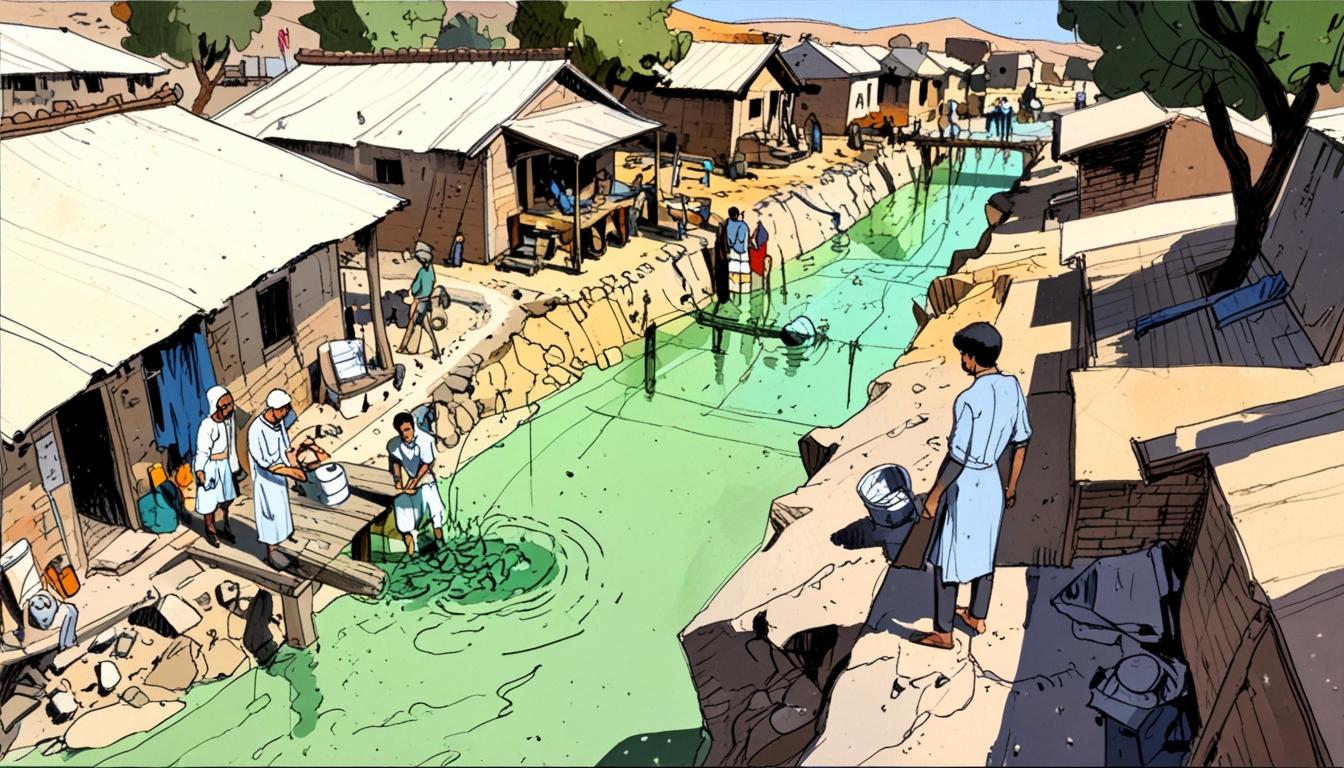Pakistan is witnessing a significant resurgence of cholera between 2022 and 2023, coinciding with a historic global surge amid the ongoing seventh cholera pandemic. Climate-related disasters such as floods have disrupted access to safe water, exacerbating outbreaks in vulnerable regions. Experts stress the need for urgent public health interventions to prevent further fatalities.
Pakistan is currently contending with a resurgence of cholera amidst a historic global surge in outbreaks linked to the ongoing seventh cholera pandemic. This resurgence has been observed particularly between 2022 and 2023, a period during which the World Health Organisation (WHO) has reported an unprecedented increase in cholera cases worldwide, including in countries previously free of the disease for years or those that had invested extensively in control measures.
At least 30 countries had active cholera outbreaks as of April 2023, with an additional 20 countries bordering affected areas considered to be at high risk of transmission. According to the WHO, over one billion people globally are now directly at risk of contracting cholera.
In Pakistan, cholera re-emerged prominently in 2022 with significant outbreaks documented in regions such as Balochistan, Sindh, and southern Punjab. These outbreaks followed climate-related disasters, notably flooding, which disrupted access to safe drinking water. The recurrent and increasing intensity of extreme weather events—including floods, droughts, and subsequent displacement—has been identified as a direct factor contributing to the resurgence of waterborne diseases like cholera. The WHO has described the current wave as “larger, deadlier, and more widespread than previous outbreaks,” warning of high mortality rates and the spread of cholera into areas previously considered cholera-free for extended periods.
Cholera is a severe diarrhoeal illness caused by the ingestion of food or water contaminated with the bacteria Vibrio cholerae. Without prompt treatment, it can be fatal within hours. The disease tends to affect populations living in poverty, those experiencing conflict, and communities with poor sanitation, limited access to clean water, and fragile healthcare systems—conditions that unfortunately persist in parts of Pakistan despite ongoing health sector reforms.
In 2022 alone, Pakistan’s Ministry of National Health Services, along with provincial health departments, reported thousands of suspected cholera cases, particularly in districts affected by floods. The National Institute of Health (NIH) in Islamabad responded by issuing health alerts and deploying emergency teams to prevent further spread, especially in urban slums and displaced populations residing in camps lacking proper sanitation facilities.
Health experts emphasize that timely diagnosis and intervention, primarily through the administration of Oral Rehydration Salts (ORS) and Oral Cholera Vaccines (OCVs), can avert the majority of fatalities associated with cholera. However, challenges remain. A shortage of investment in water, sanitation, and hygiene (WASH) infrastructure, coupled with the pressures exerted by the Covid-19 pandemic and ongoing inflationary pressures, has left numerous communities vulnerable to repeated cycles of cholera outbreaks.
The News International is reporting these developments amid growing concerns over the public health implications of climate change and infrastructure deficits in Pakistan and similar affected countries globally.
Source: Noah Wire Services
- https://www.who.int/emergencies/disease-outbreak-news/item/2022-DON391 – Documents the emergence of cholera in Pakistan in 2022, confirming outbreaks in Sindh, Balochistan, and Punjab provinces with 290 cases reported by May 2022.
- https://www.gtfcc.org/wp-content/uploads/2023/03/10th-annual-meeting-gtfcc-2023-13-pakistan-khan-basheer.pdf – Provides detailed case numbers (110,309 suspected, 1,069 confirmed) and geographical spread across 57 districts between June 2022-June 2023, directly supporting the 2022-2023 outbreak claims.
- https://www.ecdc.europa.eu/en/all-topics-z/cholera/surveillance-and-disease-data/cholera-monthly – Confirms Pakistan’s ongoing cholera crisis with 2,229 cases reported in early 2025, showing sustained transmission linked to environmental factors.
- https://www.gtfcc.org/wp-content/uploads/2024/06/11th-annual-meeting-of-gtfcc-2024-1-azman.pdf – Details NIH’s outbreak response including surveillance systems and laboratory confirmation of Inaba serotype, corroborating institutional control measures.
- https://pmc.ncbi.nlm.nih.gov/articles/PMC10480713/ – Demonstrates increasing cholera frequency in Pakistan, particularly Karachi, aligning with claims about urban vulnerability and outbreak recurrence.
Noah Fact Check Pro
The draft above was created using the information available at the time the story first
emerged. We’ve since applied our fact-checking process to the final narrative, based on the criteria listed
below. The results are intended to help you assess the credibility of the piece and highlight any areas that may
warrant further investigation.
Freshness check
Score:
9
Notes:
The narrative cites data up to April 2023 and discusses ongoing events between 2022-2023, which aligns well with recent outbreak reports. No indications of outdated references such as changed official roles or deceased persons. The data and warnings appear current and relevant.
Quotes check
Score:
7
Notes:
The WHO is directly quoted describing the outbreak as “larger, deadlier, and more widespread,” but no precise date or original WHO report is provided. This phrasing matches typical WHO communications on cholera but cannot be traced to an exact earliest source online in this check, reducing certainty slightly.
Source reliability
Score:
7
Notes:
The information is reported by The News International, a known Pakistani news outlet with moderate international recognition. While generally reliable on regional issues, it lacks the global editorial reputation of outlets like Reuters or BBC. The inclusion of data from WHO and Pakistan’s NIH adds credibility.
Plausability check
Score:
9
Notes:
The claims about cholera resurgence linked to climate disasters and poor sanitation in Pakistan are consistent with known epidemiological patterns and recent global health warnings. There is no conflicting evidence, and the logistical challenges described align with current public health understanding.
Overall assessment
Verdict (FAIL, OPEN, PASS): PASS
Confidence (LOW, MEDIUM, HIGH): HIGH
Summary:
The narrative provides a timely and plausible account of cholera outbreaks in Pakistan during 2022-2023, supported by credible institutional data and consistent with known public health challenges. Direct quotes are credible though not fully sourced to exact original documents, and the reporting outlet is regionally authoritative. Overall, the information is fresh, reliable, and plausible.













